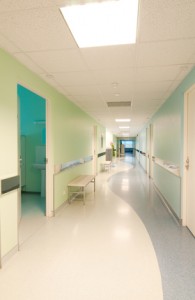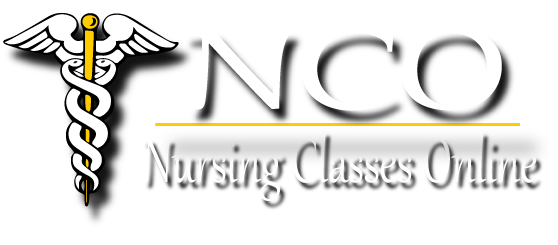How to Become an RN
Are you wondering what it takes to become a RN (registered nurse)? A career in nursing is one of the fastest-growing occupations in the United States. The increasing complexity of medical technology, large population of aging Baby Boomers, and longer life expectancy rate have resulted in an increased need for registered nurses. This need is so great that registered nurses are projected to have one of the highest levels of job growth of all occupations over the next eight years.
In America, opportunities for registered nurses have never been as lucrative, in-demand, or flexible as they are today. The ability to work full-time, part-time, weekends, and/or holidays coupled with the variety of shift options, allows registered nurses to have an extremely convenient work schedule.
What Do Registered Nurses Do?
A registered nurse’s workday is spent providing holistic, compassionate care to improve the quality of patient outcomes. They are responsible for assessing patients, providing appropriate nursing interventions, offering emotional support for patients and their families, informing the public about various medical conditions, and evaluating the patient’s response to treatment.
Work Settings
 RN’s can work in a variety of work settings. Some common places registered nurses work include:
RN’s can work in a variety of work settings. Some common places registered nurses work include:
- Hospitals
- Home health agencies
- Surgical centers
- Private practice
- The military
- Public or private schools
- Camps
- Health departments
- Insurance offices
Become an RN
After graduating from high school, students can follow one of three educational tracks to become an RN.
- Bachelor’s degree track (BSN)
- Associate’s degree track (ADN)
- Diploma in nursing from an accredited nursing program
Bachelor’s Degree in Nursing (BSN)
Many advanced roles in health care require a bachelor’s degree in nursing. This is because students in BSN programs, receive more training in community nursing, leadership, public health nursing, and critical thinking. These skills are especially important in preparing future nurses to treat the increasingly complex medical conditions seen in hospitals today.
After graduating from a BSN program, which takes about four years to complete, students can take the National Council Licensure Examination for Registered Nurses (NCLEX-RN) and receive a license to practice nursing. Students wanting to pursue nursing roles in administration, management, education, or research should consider the BSN tract because bachelor’s degree prepared registered nurses do not need additional coursework to pursue an advanced degree.
Associate’s Degree in Nursing (ADN)
 The most popular education track for becoming a registered nurse is the ADN program. In just two-to-three years, students can receive their degree and sit for licensure to become a registered nurse. Some students choose the associate’s degree in nursing tract so they can take a position as an RN in a hospital where they receive hands-on training, tuition-reimbursement, and flexible work schedules, allowing them to quickly graduate from a RN-to-BSN degree program.
The most popular education track for becoming a registered nurse is the ADN program. In just two-to-three years, students can receive their degree and sit for licensure to become a registered nurse. Some students choose the associate’s degree in nursing tract so they can take a position as an RN in a hospital where they receive hands-on training, tuition-reimbursement, and flexible work schedules, allowing them to quickly graduate from a RN-to-BSN degree program.
The associate’s degree program places a strong emphasis on bedside nursing care, effective communication, health promotion, and skills training. Graduates of an ADN program can take the NCLEX and receive a license to practice as a registered nurse. Like BSN graduates, RN’s from ADN programs can work in a variety of health care settings. However, registered nurses from ADN programs will need to obtain their BSN before they can apply to advanced nursing programs.
Diploma Programs in Nursing
Diploma programs started in hospitals across the United States in the 1870s, making them the oldest of all three RN programs. Although most diploma nursing programs today still originate in hospital settings, many are affiliated with colleges or universities.
Diploma nursing programs take two-to-three years to complete and are best suited for students who want a career as a bedside nurse. Graduates of diploma programs have traditionally received a diploma rather than a college degree. However, today many diploma programs offer their students double certifications where they receive a diploma and ADN upon graduation. Graduates of accredited diploma programs are qualified to take the NCLEX and receive a license to practice as a registered nurse.
Coursework
Although coursework will vary depending on the program, most RN programs require a combination of nursing and general courses. Student nurses will need to take general science courses in human anatomy, physiology, microbiology, nutrition, psychology, pharmacology, and human development. They will also be required to take courses specific to nursing such as dosage calculation, pediatrics, psychiatry, adult health, and maternal/newborn nursing.
Clinical Components
All nursing education programs have a clinical component. In the clinical component, supervised nursing students care for patients and their families in a variety of settings. Clinical nursing experiences include rotations in pediatrics, psychiatry, maternity, surgery, and general adult medicine. Long-term care facilities, home health agencies, public health departments, and the public school system are additional clinical rotation courses found in most bachelor’s degree and many associate’s degree nursing programs.
It is nice to know there are several paths you can take to become a registered nurse. If you want to work your way up to a bachelor’s degree you can start in a diploma or associate’s degree program, pass the licensure exam, take an entry-level position as a RN in a hospital, and then receive tuition-reimbursement to finish your bachelor’s degree in nursing. Knowing more about the different paths you can take to become an RN will help you get started on an exciting career in nursing!













